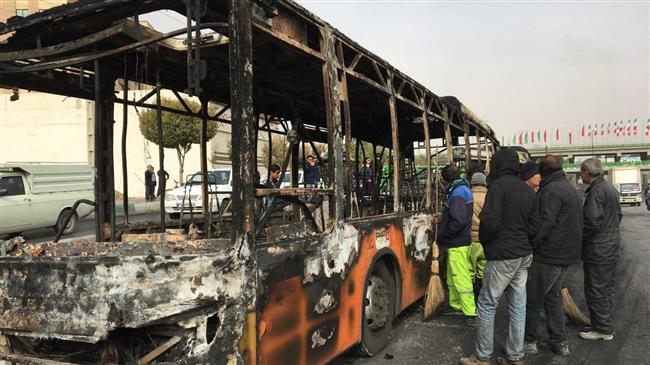In an interview with France 24 released on Wednesday, Abbas-Ali Kadkhodaei underlined the need for making a distinction between people legitimately protesting over “issues related to livelihood and the economy” and terrorists and saboteurs.
“We have to be able to separate those who were protesting for their livelihood — they have to be honored, we must listen to their concerns and see what their problems are — and those who committed terrorist acts and sabotage,” he said.
The official also stressed that during last month’s unrest, security forces took action against “disturbances.”
Iran “has always listened with open ears to peaceful protesters; the authorities must respond to the people’s rightful demands,” he said. “But naturally, when there are disturbances — vandalism, attacks against government centers and the destruction of people’s property — it is the duty of security forces and police to take action, and naturally during these operations…incidents can happen.”
Kadkhodaei further noted that the analysis of the events in Iran from abroad “is not always the correct.”
He further defended the nationwide internet shutdown during the riots and said, “If there’s a road or a freeway and terrorists come and do something, what’s the first thing you will do to the freeway? You will shut it down.”
In mid-November, the Iranian government raised gasoline prices in order to moderate the national consumption rate.
The move prompted protests in a number of cities that went largely peaceful, but turned violent when armed riotous elements took advantage of the situation to vandalize public and state property, and attack civilians and security forces alike.
Many of the rioters were found to have links to the notorious US-backed Mujahedin-e Khalq Organization (MKO) terror group, royalists and separatists besides members of organized groups trained towards staging acts of sabotage.
So far, no official death toll from the violence has been released.
